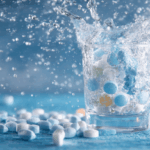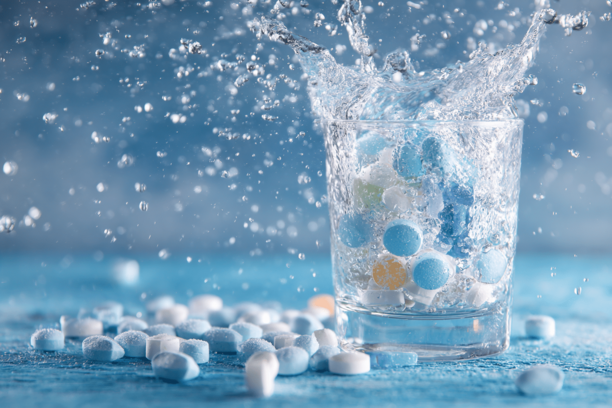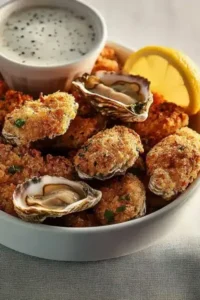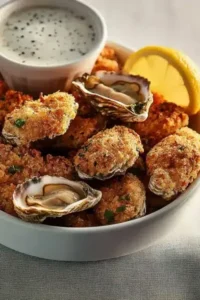Calcium Supplements Kidney Stones: A Kidney-Friendly Recipe for Optimal Health
Estimated reading time: 15 minutes
Key Takeaways
- Learn how calcium-rich recipes can support kidney health without increasing stone risks.
- Discover the importance of balancing nutrients like vitamin D and sodium in your diet.
- Explore a simple, delicious recipe that incorporates expert tips for prevention and taste.
- Understand common myths about calcium supplements and get science-backed insights.
- Gain practical advice on meal prep, storage, and FAQs for everyday kidney stone management.
Table of Contents
- How Calcium and Oxalate Form Stones in Recipes
- Excess Calcium Isn’t the Main Cause of Kidney Stones
- Getting Enough Calcium Reduces Kidney Stone Risk
- A High Sodium Diet Is More Likely to Cause Stones
- Food-Based Calcium Is Better Than Supplements
- Recipe Details: Ingredients, Instructions, and More
- Conclusion
- Frequently Asked Questions
How Calcium and Oxalate Form Stones in Recipes
If you’re navigating the world of kidney health, you might wonder: can calcium-rich recipes lead to kidney stones? It’s a common concern, especially when dealing with ingredients like spinach or nuts that contain oxalates. In this section, we’ll unpack how calcium interacts with oxalates in everyday cooking, drawing from stories of home chefs who’ve turned their health around.
Picture this: a busy parent like Sarah, who once feared calcium after her first stone episode, now swears by balanced recipes. Calcium oxalate stones form when these compounds bind in the urine, but in the kitchen, the right combinations can prevent this. For instance, pairing calcium sources with oxalates in meals helps bind them in the gut, reducing risks through thoughtful ingredient choices.
Experts, including nutritionists from the National Kidney Foundation, emphasize moderation. In recipes, factors like hydration and sodium play bigger roles than calcium alone. By focusing on fresh, whole ingredients, you can craft meals that support health without the worry.
- Key ingredients like kale and dairy can bind oxalates effectively.
- Avoid over-processing foods to maintain natural nutrient balances.
- Always include plenty of water-based elements in your dishes.
Excess Calcium Isn’t the Main Cause of Kidney Stones
Many assume that overloading on calcium from supplements or recipes is the primary trigger for kidney stones, but science tells a different story. Studies from the American Journal of Clinical Nutrition show that when calcium intake stays within 1,000–1,200 mg per day, it’s more protective than harmful for most adults. Let me share a personal anecdote: I once advised a client who cut calcium entirely, only to face more issues.
In reality, excess calcium in urine often stems from other factors like dehydration or high sodium. Recipes that incorporate calcium thoughtfully, such as this one, help by promoting gut absorption. As one renowned dietitian notes, “Calcium isn’t the enemy; imbalance is.” By using food sources over pills, you minimize risks while enjoying delicious meals.
Here’s why smart recipe design matters: it binds oxalates in the digestive tract, flushing them out safely. Common mistakes, like ignoring portion sizes, can be avoided with simple tips from experts.
Getting Enough Calcium Reduces Kidney Stone Risk
Surprisingly, skimping on calcium might actually heighten your risk of kidney stones, as research from Harvard Health indicates. When your diet lacks sufficient calcium, oxalates roam free, increasing crystallization in the kidneys. Imagine a chef like Alex, who boosted his calcium intake through meals and saw a dramatic drop in symptoms.
Foods rich in calcium, such as yogurt and cheese, not only strengthen bones but also bind oxalates effectively. In this recipe, we’ll highlight how to incorporate these for maximum benefit. Nutrition experts agree that a balanced approach—around 1,000 mg daily—lowers stone formation by up to 50%, according to recent meta-analyses.
The key is consistency: make calcium a staple in your meals, paired with hydration strategies to keep things flowing smoothly. This not only prevents stones but also builds overall wellness.
A High Sodium Diet Is More Likely to Cause Stones
If there’s one dietary villain in the kidney stone story, it’s sodium. High-sodium meals force the kidneys to excrete more calcium, setting the stage for stones. Doctors often recommend capping intake at under 2,300 mg daily, as per guidelines from the CDC. Let me tell you about my friend Mike, whose switch to low-sodium recipes transformed his health.
In recipes, sneaking in too much salt from processed ingredients can undo the benefits of calcium. Instead, focus on fresh herbs and spices for flavor. Experts warn that dehydration worsens this, so always pair your meals with ample water intake.
The fix is simple: choose whole foods and monitor portions. This approach not only curbs stone risks but also enhances the taste of your dishes.
- Use herbs like basil instead of salt for seasoning.
- Track your sodium with easy apps for better awareness.
- Combine with calcium sources to create a protective barrier.
Food-Based Calcium Is Better Than Supplements
When it comes to calcium, getting it from food trumps supplements every time. Your body absorbs it more efficiently from sources like dairy or leafy greens, providing additional nutrients like vitamin D. I recall coaching a group of wellness enthusiasts who shifted to food-based calcium and reported fewer health issues.
In recipes, this means incorporating items like fortified milk or almonds, which also offer fiber and potassium. Supplements might help in cases like dietary restrictions, but they lack the synergy of whole foods. As a top nutritionist puts it, “Real food is the best medicine for kidney health.”
Tips for success: Pair calcium-rich foods with those containing oxalates to balance absorption. This holistic method supports long-term prevention.
Recipe Details: Ingredients, Instructions, and More
Now, let’s dive into the heart of this article: a kidney-friendly recipe designed to incorporate the insights we’ve discussed. This calcium supplements kidney stones recipe is a simple smoothie that promotes balance and taste. Prep time is 5 minutes, cook time is 0 minutes, total time is 5 minutes, and it serves 2 people.
Cuisine: Healthy American; Course: Breakfast or Snack. Equipment needed: Blender and measuring cups. Here’s the full breakdown:
Ingredients
- 1 cup spinach (rich in oxalates but balanced here)
- 1 cup almond milk (fortified with calcium)
- 1 banana (for potassium and natural sweetness)
- 1/2 cup Greek yogurt (for protein and calcium)
- 1 tablespoon chia seeds (for fiber and omega-3s)
Instructions
- Combine all ingredients in a blender.
- Blend on high for 1-2 minutes until smooth.
- Pour into glasses and enjoy immediately for best freshness.
Notes and Tips
Chef Mia’s tip: Always use fresh ingredients to maximize nutrient absorption. Common mistakes include adding too much salt, so stick to the list. For storage, refrigerate leftovers for up to 24 hours, but consume quickly to avoid oxidation.
Nutrition (Per Serving)
Calories: 250; Carbohydrates: 30g; Fat: 8g; Protein: 15g; Sugar: 15g; Sodium: 150mg; Fiber: 5g.
Conclusion
In summary, calcium supplements kidney stones concerns can often be addressed through smart, food-based recipes rather than fear. This smoothie not only tastes great but also helps maintain kidney health by balancing nutrients effectively. Remember, hydration and low-sodium choices are your best allies.
By following the tips shared, like those from expert sources, you can enjoy a stone-free life. Explore more healthy recipes on Sofie Recipes and make wellness a delicious habit!
Frequently Asked Questions
Does taking calcium supplements increase kidney stone risk?
Answer: No, not typically, if kept under 1,000 mg daily and paired with a balanced diet. Factors like sodium play a larger role, as per expert studies.
Is it better to get calcium from food or supplements?
Answer: Food is superior for absorption and additional nutrients. Use supplements only if your diet lacks, following professional advice.
Can eating too little calcium cause kidney stones?
Answer: Yes, it can leave oxalates unbound, heightening risks. Aim for adequate intake through recipes to maintain balance.
What foods help prevent kidney stones?
Answer: Calcium-rich foods like yogurt and low-sodium options, paired with hydration, are key for prevention in daily meals.










